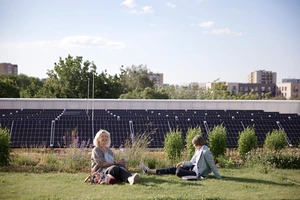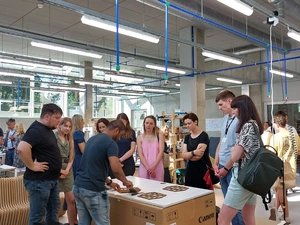Kaunas University of Technology (KTU) has joined the Cleantech Cluster Lithuania. It is expected that the partnership, initiated by the Faculty of Mechanical Engineering and Design Centre and the Institute of Environmental Engineering, will help strengthen the University’s study and research activities focused on environmental well-being and the development of sustainable technologies in both national and international contexts.
The Cleantech Cluster Lithuania cluster brings together companies, research and education institutions, and other partners operating in the clean technology sector. By sharing professional knowledge, skills, business connections, reputation, and experience, the cluster members aim to enhance their competitiveness and strengthen Lithuania’s image as a country developing clean technologies.
According to Dr. Kazimieras Juzėnas, Dean of the KTU Faculty of Mechanical Engineering and Design, the new partnership will contribute to KTU’s overall vision as a sustainable university and further develop its study and research activities. “We aim to strengthen the integration of the sustainability component into engineering and technology study programmes, into students’ independent projects, and to promote interdisciplinary scientific research. Cooperation with cluster partners will allow us to engage with and contribute to solving pressing practical problems and to exchanging experiences. I believe that such collaboration will be highly beneficial for all parties and, most importantly, for society striving towards sustainable development goals,” says Dr Juzėnas.
Membership in the Lithuanian clean technology cluster was initiated in preparation for the launch of two new master’s programmes in English in 2025 — Design for Sustainable Future and Sustainable Intelligent Habitats.



